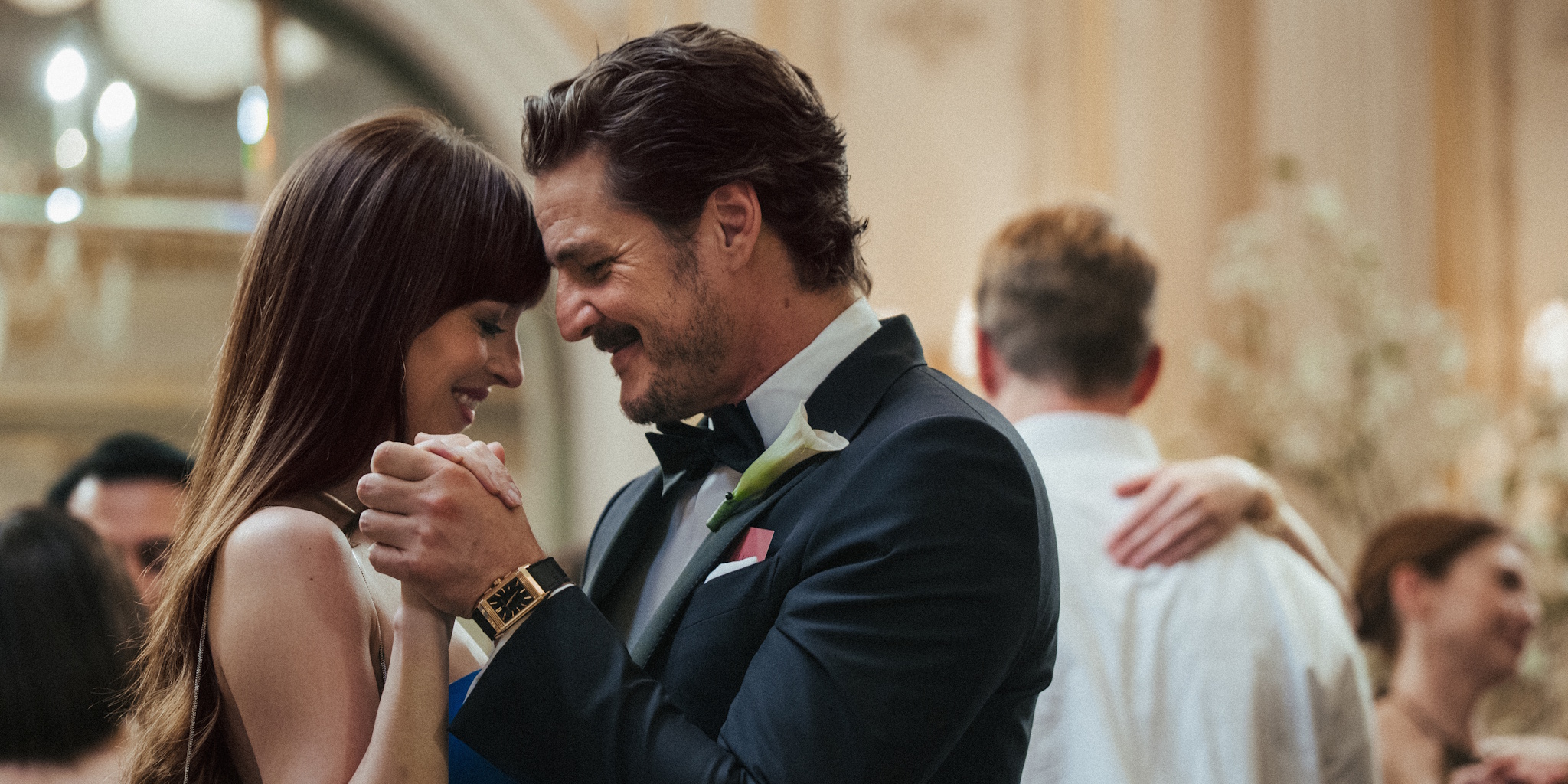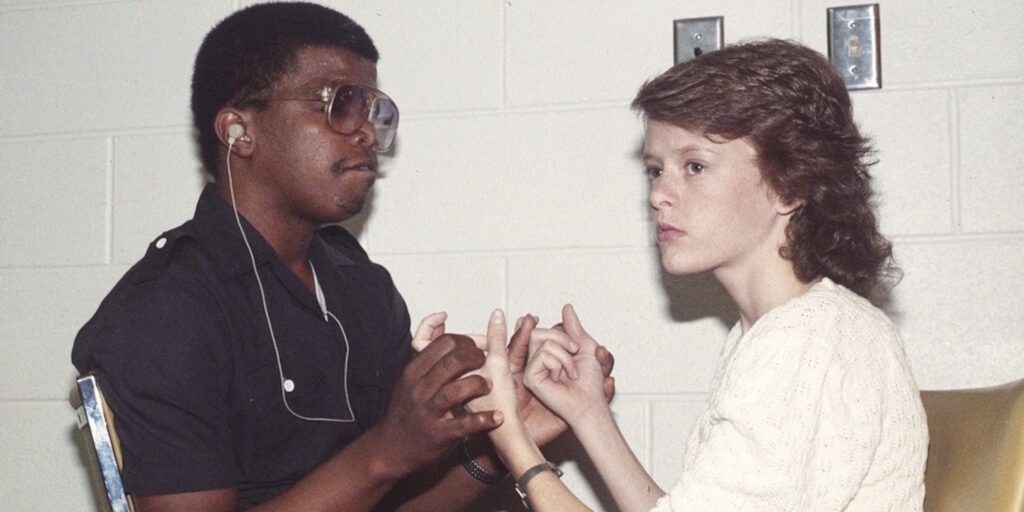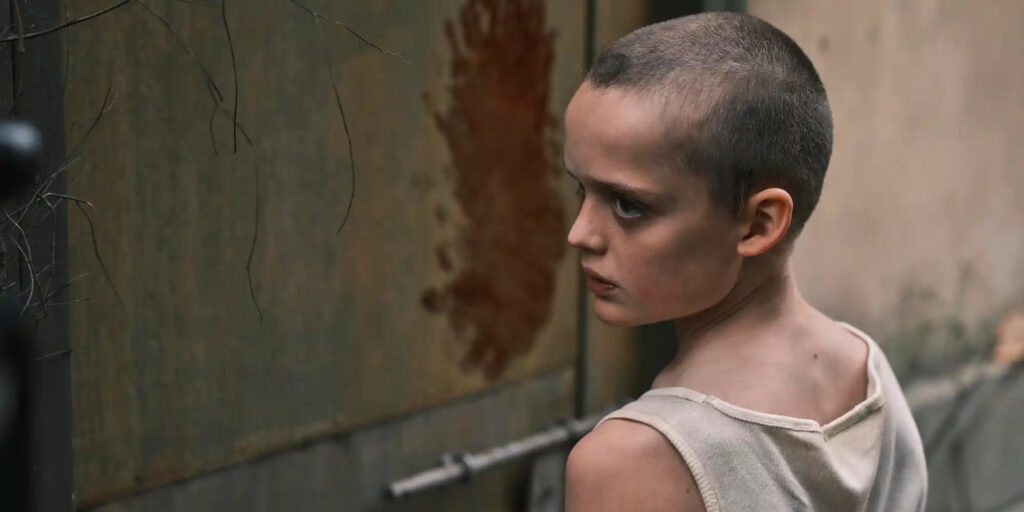Celine Song’s Materialists starts off as any other rom-com would, with a 2001-esque prologue featuring cavemen. When a prehistoric couple express a timeless romantic gesture – a proposal sealed via a flower fashioned into a ring – the film then cuts to the title card. It’s the film’s first joke, as any sincerity in the moment is immediately upended by the film labeling these primeval lovers as “materialists.” Song then proceeds to apply this blunt thesis statement to the dating scene of the modern age.
Partially based on Song’s own experience as a matchmaker, Materialists spins a romantic story set in New York City’s romance industry. Lucy (Dakota Johnson) works for the high-end matchmaking company Adore, where she spends her days meeting with clients, arranging dates based on preferences, and checking in on their post-date satisfaction. This dating-centric job should make Lucy care more about her own status as a single woman, but as a “voluntary celibate,” she couldn’t care less. In terms of dating, her only goals are to either die alone or be married to someone rich, the latter option feeling less and less important as her career successes mount. Who needs a man when you’re celebrated for arranging nine relationships-turned-marriages at a company that charges $50,000 per person?
That all changes when, while attending her latest client’s wedding, Lucy meets the groom’s brother – and, more importantly, financier – Harry (Pedro Pascal), a charming tall drink of water who is instantly infatuated with her. Their first conversation is quickly interrupted by another big meet-cute: Lucy’s ex-boyfriend John (Chris Evans), a struggling actor who happens to be working as a caterer for the wedding.
While any other romantic comedy would focus on the love triangle between the poor man, the rich man, and the woman caught in the crossfire, Materialists – as with Song’s previous work, Past Lives – lightly subverts expectations. Even though Lucy ends up both dating Harry – in exchange for a promised Adore contract – and reconnecting with John, the film aims for higher ideas. In a way, Song’s screenplay is less about the three characters and more about what they represent and how they factor into the game of love.
For Lucy, coming from a low-income family and spending her 20s as a failed actor, she desires, above all, an assurance of financial security. John, a 37-year-old man who lives with three roommates and can only get parts in off-off-Broadway plays, doesn’t have much to offer her besides a sense of familiarity. Harry, meanwhile, is everything Lucy desires in a partner, a “unicorn” as she describes him: He’s handsome and more than 6 feet tall, takes his dates to exclusive restaurants, buys expensive flowers, and owns a $12 million apartment. He is the ideal catch of whom any person would dream. However, as Lucy eventually learns the obvious lesson, sometimes less is more.
This theme is all well and good, a noble idea that other romance films have tackled before, and yet with Materialists, it lacks interiority. Masquerading as an elevated rom-com, the film presents itself as having something deeper and more profound to say about the nature of modern relationships. Shot by Past Lives cinematographer Shabier Kirchner, the use of nicely framed close-up shots and mix of diluted colors and bright lighting brings a classicism to the genre that hasn’t been seen since the works of Nora Ephron (Materialists even shares the same chastity as an Ephron story, focusing more on the romantic side of things over the sexual).
The abundance of gags involving picky clients and the main trio’s own capitalistic behavior beats the audience over the head. It’s abundantly clear what Song wants to criticize here, which makes the film’s conclusions feel less lofty than the filmmaker clearly intends. Materialists doesn’t even reach the same levels of emotional complexity as Song’s prior film. Whether due to a tonal sacrifice to fit the conventions of a romantic comedy or an oversight in the construction of its plainly allegorical screenplay, the writer-director’s sophomore feature loses some of the charm, humor, and intrigue it should have possessed.
The only instance of the latter is in a subplot about Lucy’s client Sophie (Zoë Winters). A woman desperate for a connection but too unpopular with other people paying for the service, Sophie ultimately changes Lucy’s algorithmic views on love when she endures an assault during an Adore-arranged date. This sudden crisis undoes Lucy’s self-assured exterior, complementing the way that Johnson’s initial restraint is slowly chipped away to reveal a more emotional person. Through this, the film questions the exploitative nature of matchmaking services, with Lucy’s ex-client going so far as to label her a pimp. Stealing the show with her vulnerability, Sophie is the unexpected heart of Materialists.
It’s in elements such as this that the film’s flaws become apparent. Pascal and Evans, although fine actors, are stuck playing metaphors instead of people, never providing much insight into Harry and John beyond what is on the page. Notwithstanding the feature’s romantic-comedy pretensions, there is a notable lack of chemistry between the main stars. Nor is there much humor beyond taking easy potshots at people who are obsessed with finding a partner who is rich, 6 feet tall, doesn’t like cats, and has a BMI below 20. What the film does have going for it is a relatively light and breezy rom-com tone, which makes it an easy watch despite its self-importance.
For all that it presents itself as, Materialists is less than the sum of its parts. It is neither deeply empathic nor overly cynical; it settles into a certain spot in the middle, providing a soothing neutrality in its outlook on the modern dating scene. It offers nothing more complex than valuing others based on emotional connection rather than status, a statement that feels a little too safe for a film with an opening as grandiose as a paleolithic flashback about universal love rituals. Although it has space to complicate matters regarding Lucy’s romantic choices, it never does. For a film that presents a commentary on the dangers of being reliant on algorithms and impersonal contact, even Sophie’s subplot gets wrapped up a little too cleanly. In the end, Materialists fulfills the essential function of most rom-coms, providing comfort to viewers as they themselves attempt to sort out their love lives. Given Past Lives’ humane and quietly emotional story and the ideas that Song’s sophomore effort tees up, there is some disappointment that Materialists fails to deliver a similar catharsis.
Materialists is now playing in select theaters.




